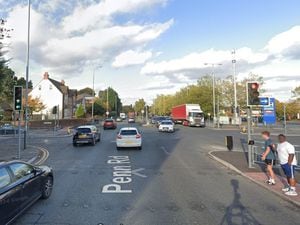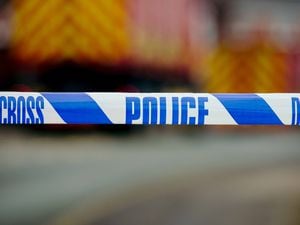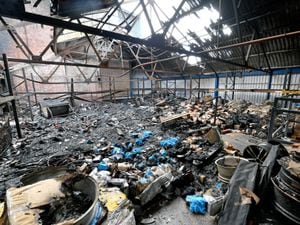When will Britain be ready for immigration debate?
The West Midlands is a place where people of different cultures live side by side. So why is it still so difficult to have a proper debate on immigration? Daniel Wainwright reports
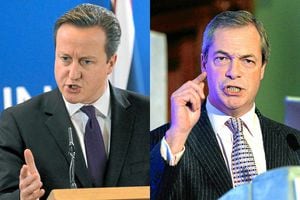
When will Britain be ready to have an open and honest debate about immigration? Perhaps, only, once it has been able to do so without someone bringing up the name of Enoch Powell.
The former MP for Wolverhampton is considered a 'poisonous' subject when it comes to discussing immigration.
But his old constituency and the wider Black Country are now arguably models of diversity, brilliant blueprints of integration where the community includes the descendants of immigrants speaking with the same accent as those who can trace their families back to the area for generations.
All this week the Express & Star has been looking at immigration in modern Britain, from the asylum backlog to Eastern Europeans who agree with the UK government that benefits for new arrivals need to be curbed.
But time and again the debate comes back to Enoch Powell and the 'Rivers of Blood' speech that polarised opinion 46 years ago.
Vince Cable, the Liberal Democrat Business Secretary, angered Tory coalition colleagues by suggesting David Cameron was using Mr Powell's rhetoric while Nigel Farage, the UKIP leader, was tricked into saying he agreed with passages of the speech in an interview on Sky News.
In each case, attention was diverted away from the immigration debate – and back to Enoch Powell.
And the row over whether Enoch Powell was 'right' or 'wrong' has, according to one city-born author, set the immigration debate back.
Sathnam Sanghera, whose book Marriage Material opens with a quote from Enoch Powell, said: "Whenever anyone mentions him on radio or TV there's always a pause from the broadcaster, who is concerned that they're about to get into the issue of whether he was right or wrong.
"Enoch Powell is a poisonous subject. But he was a very complex man. He wasn't wrong about everything, nor was he right about everything."
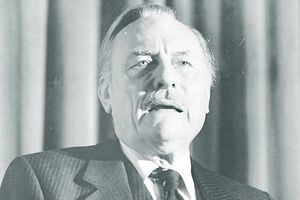
Mr Sanghera, aged 37, said the decades of fall-out over the debate has not helped the black or Asian communities.
"I think Enoch Powell knew what effect his speech would have. It resulted in black and Asian children being spat on," he said. "But on the other hand he was the first person to discuss the issue properly.
"Now, though, what he said does not get discussed because it can result in people being called racist.
"That means the debate has been suppressed for years."
Junior Hemans, chairman of the African Caribbean Cultural Resource Centre in Wolverhampton, believes the city has moved on.
He argues that the problems today are issues that transcend colour. "I don't hear of any real problems, it's a tolerant society in terms of communities," he said. "It was almost 50 years ago and the environment and context of the debate has changed.
"The issues today affect everyone. We have an economy that is said to have a burgeoning welfare bill.
"The debate has to be around skills and whether the West Midlands is somewhere that is open for business. Immigrants are arriving and setting up car washes and corner shops. They see Britain as a place that is open."
Paul Uppal is now the MP for Wolverhampton South West, Enoch Powell's constituency.
The British-born Sikh is acutely aware of the irony of being an Asian MP in such a seat and delights in pointing out that his 691 majority is the same as Mr Powell's when he was first elected in 1950.
"It was Pam Powell, Enoch's widow, who told me that," Mr Uppal said. "I told her people think Enoch would be spinning in his grave to have me as the MP in his old seat. She says he wouldn't.
"One of the inspirations for the speech was his concerns over what had happened in India and divisions between Sikhs, Hindus and Muslims.
"It was his view that Britain would go the same way, with neighbour against neighbour. But he was not right. India is not perfect but there are more Muslims living there than outside. Britain isn't perfect.But it's a country where different races on the whole live in harmony.
"I went to see the England football team play in Portugal a decade ago and wore a St George's flag wrapped around me.
"If Enoch Powell had been right, would I have been able to do that?"
"Enoch Powell underestimated Britain. That's why he was wrong."
Former South Staffordshire MP Lord Patrick Cormack gave an address at Mr Powell's funeral in 1998. He believes the use of his friend's name is not only unhelpful but unfair.
Lord Cormack said: "To seek to define the life and philosophy of a public figure by selected quotations is both unwise and unfair.
And he would not have enjoyed the friendship of the likes of Labour MPs Michael Foot and Tony Benn if he had been a racist little Englander."
Nonetheless, Lord Cormack believes that Mr Powell was wrong to warn that 'I seem to see the River Tiber foaming with much blood'. Lord Cormack said: "I regretted that quotation because I knew that it would not only be misinterpreted but over-interpreted."
Meanwhile Mr Sanghera, a former pupil of Wolverhampton Grammar School, does not believe the city is a perfect example of diversity, even though it is further ahead than many other places.
"The problem is that Birmingham always tries to be the city of the future and Wolverhampton always tries to be Birmingham," he said. "But Wolverhampton was actually already a city of the future. It went through the immigration debate 10 to 15 years before other areas, arguably in part because of Powell.
"He was wrong in that there was not the blood on the street. And where my parents live there are white, black and Asian people who talk to each other and get on well. That's not the case everywhere."
And while there were predictions in the 1960s of race riots, they did not happen in Wolverhampton.
Oddly, the riots of 2011 proved this point. When shop windows were being smashed and people gave in to mob mentality, it was people of all different races behaving just as despicably as each other. And it was white, black and Asian shopkeepers and residents who came together to clean up and rebuild.
The sense of community in Wolverhampton was at its greatest the day after a group of people behaved like thugs.
Now that really is progress.

